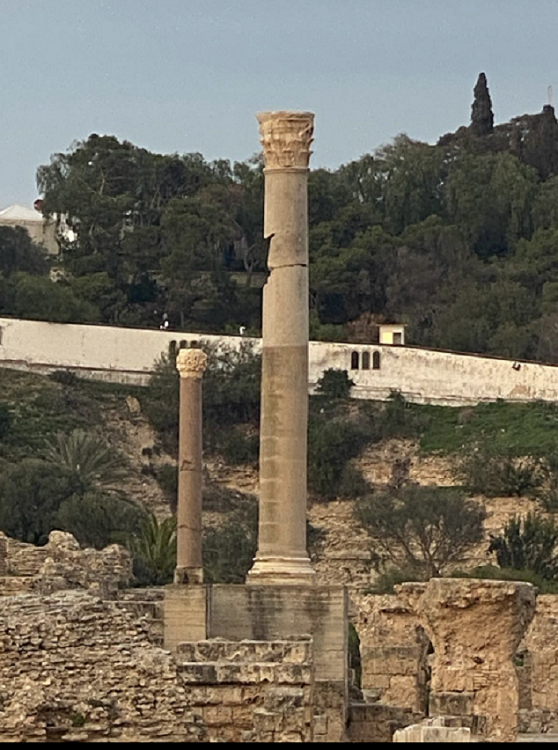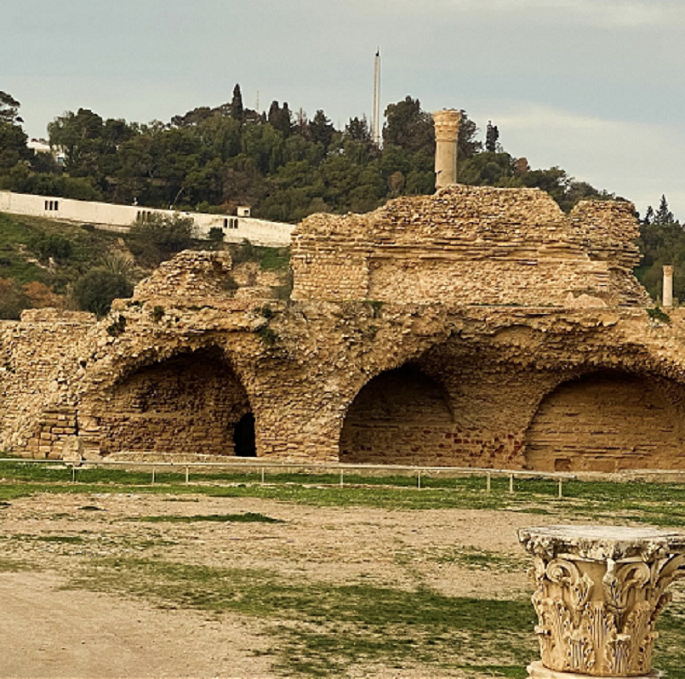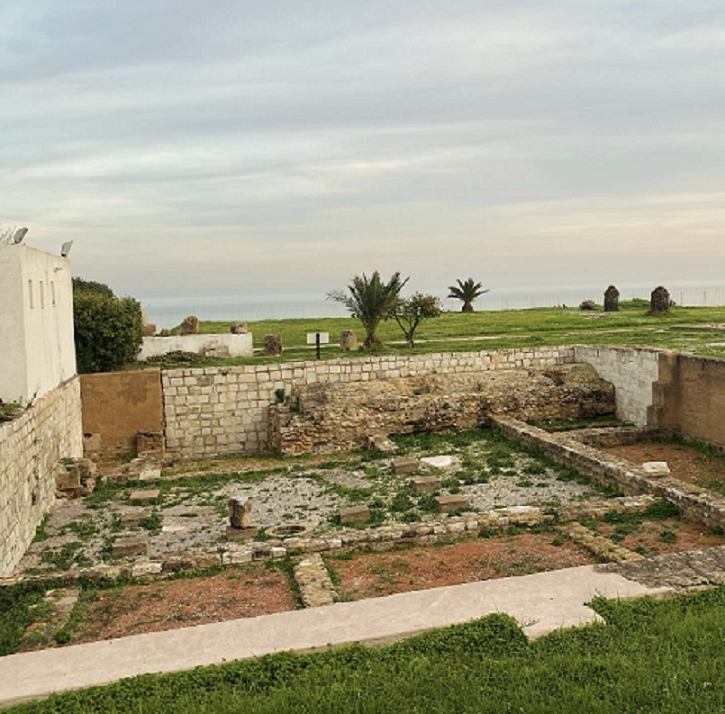The fall of Carthago-a history of domestic greed

South Pacific Familyadventure 2008
Claes Brodin
Tue 6 Feb 2024 19:06
Allthough not at all as impressive as all remnants from it`s main competitor,Rome, the history of Carthago,and especially Hannibal Barca, is very impressive.
Founded by the Phoenicians around 900B.C it was at it´s height around 300B.C and with Carthago as it´s center (harbouring 200.000inhabitants) on the Northafrican coast in todays Tunisia,their network of trade was all over the Mediterranean.
Being a people of mariners their trade was based on shipping backed up by a very well organised and numerous navy. Since Roman power and imperial ambitions increased war over "Mare Nostrum" was inevitable. This where one of the worlds most famous and talented military commanders comes in-Hannibal Barca.
Hannibals father,Hamilcar Barca, was commander in chief of the army and brought young Hannibal with him during military campaigns making him svear an oath allways to fight the Romans.
On the last picture are ruins from Carthago and a grassmeadow leaning down to the sea. This is where Hannibal,being commander in chief of the army only 25years old,departed for Carthagena in south Spain with his huge army to engage the Romans in battle.
The army was around 60.000men,mainly mercinaries but also Gauls and Celtic people joining mainly because of their mutual hate for Romans. Hannibal also carried 37 elephants,something completely new in warfare,acting more or less like todays tanks in battle crossing through enemy lines. Once coming into northern Itally Hannibal was engaged in battle and won time after time the Romans retreating. In the last major Roman effort Hannibal won the battle of Cannae 216 B.C where 45.000 Romans soldiers were killed. The tactique used in the battle has been copied endless of times in history of warfare and Napoleon as well as Wellington were great admirers of Hannibal.
At this situation the city of Rome itself was threatened and all Hannibal needed was economical support from the senate of Carthago to establish supply lines for his army.
Hannibal was a domestic hero with the people of Carthago but the senate was ruled by an aristocratic elite who were driven by two bad human characteristics,greed and envy.
Subsequently Hannibal received no support which inevitably lead to a starving army and he was finally defeated at the battle of Zima 202 B.C.
Constantly on the run from the Romans he was finally tracked and surrounded in Turkey where he decided to commit suicide taking poison.
Carthago was finally destroyed by the Romans 146 B.C
A decision by the ruling elite based on envy and greed, 70 years later led to total destruction of a whole empire.
The most interesting thing to me is that we see the same pattern all through history as well as today. It sadly reminds me that we live in Antrophocene when humans rule everything. At the same time history tells us there must be something wrong in the construction of man.


